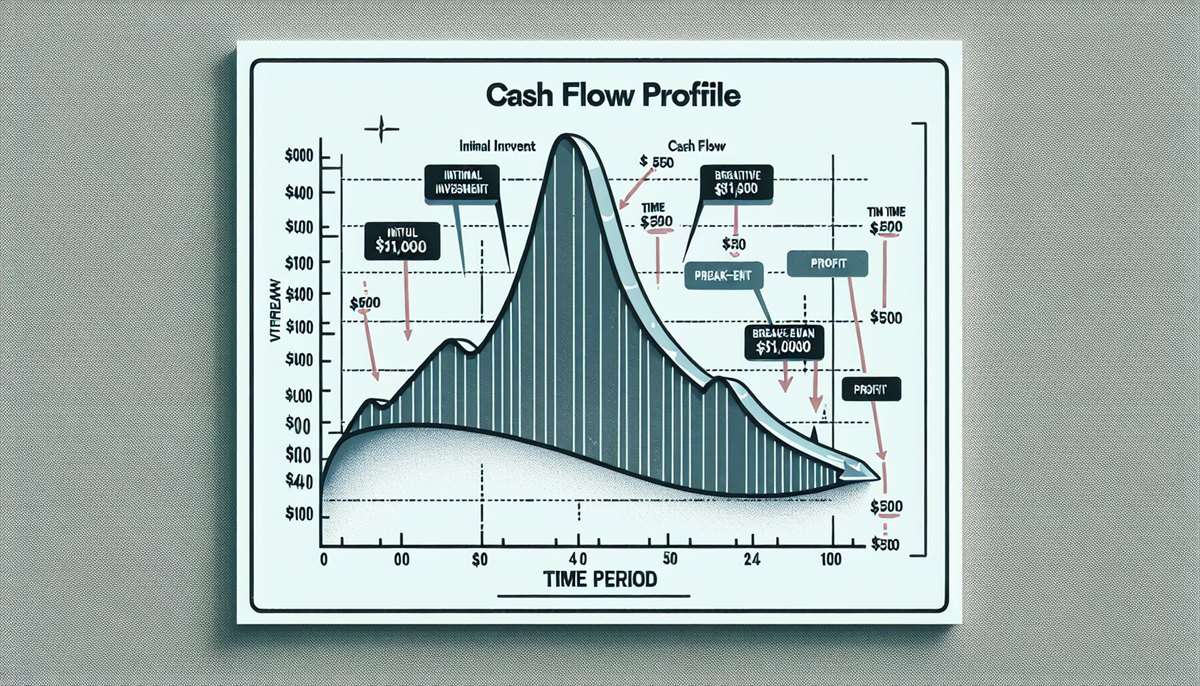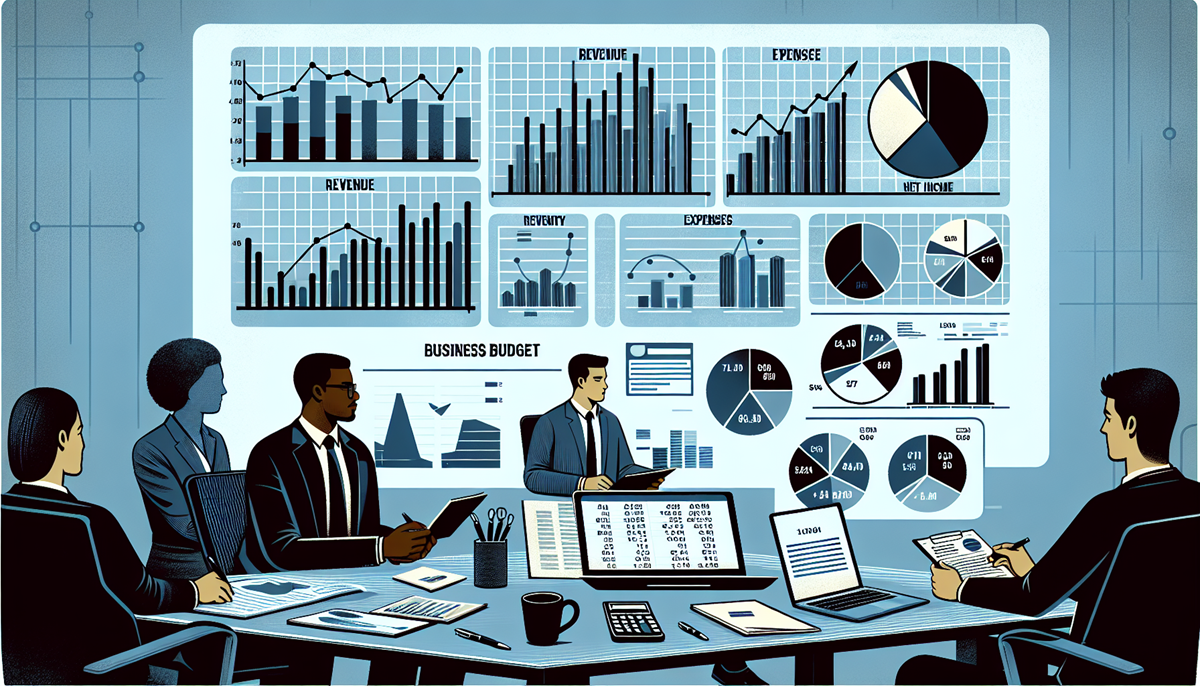Cash Flow Financial Accounting and Budgeting:
Navigating the Financial Trio for Small Business Success
As a small business owner, you’re no stranger to wearing multiple hats. But when it comes to your company’s financial health, three concepts stand out as crucial pillars: cash flow, financial accounting, and budgeting. Let’s dive into these financial powerhouses and discover how they can propel your business to new heights.
The Lifeblood of Your Business: Cash Flow
Imagine your business as a living, breathing organism. In this analogy, cash flow is the blood pumping through its veins. It’s the movement of money in and out of your business, and it’s absolutely vital for survival.
Why Cash Flow Matters
Cash flow isn’t just about having money in the bank; it’s about timing. You might be profitable on paper, but if you can’t pay your bills on time, you’re in trouble. Here’s why cash flow is crucial:
- Pays the bills: Rent, utilities, salaries – these all need cash, not promises.
- Fuels growth: Want to seize a new opportunity? You need cash on hand.
- Provides peace of mind: A healthy cash flow means less stress for you.
Cash Flow in Action
Let’s say you run a small bakery. You might sell $10,000 worth of cakes in a month, but if your customers don’t pay for 60 days, and your flour supplier wants payment in 30, you’ve got a cash flow problem. The solution? Maybe offer a discount for early payment, negotiate better terms with suppliers, or, as a last resort, put overdraft facilities in place. The big thing is to KNOW you have a problem BEFORE it bites you!
The Language of Business: Financial Accounting
If cash flow is the blood of your business, financial accounting is its nervous system – collecting, processing, and communicating vital information.
Why Financial Accounting Matters
Financial accounting isn’t just for big corporations. For small businesses, it’s essential because:
- It tells your business story: Through financial statements, you can see your business’s health at a glance.
- It aids decision-making: Should you hire that new employee? Can you afford that new equipment? Your financial statements have the answers.
- It’s required: For taxes, loans, and potential investors, accurate financial records are non-negotiable.
Financial Accounting in Practice
Imagine you’re considering opening a second location for your bakery. Your income statement shows steady profit growth, your balance sheet reveals a healthy asset-to-liability ratio, and your cash flow statement indicates you have the liquidity to handle initial costs. With this information, you can confidently move forward with your expansion plans.
The Roadmap to Success: Budgeting
If cash flow is the blood and financial accounting is the nervous system, then budgeting is the brain of your business – planning, controlling, and making decisions.
Why Budgeting Matters
Budgeting isn’t just about restricting spending; it’s about empowering you to:
- Set goals: Want to increase sales by 20% next year? Your budget is the plan to get there.
- Allocate resources: Ensure your money is going where it’s needed most.
- Anticipate problems: Spot potential cash shortfalls before they happen.
Budgeting in the Real World
Back to our bakery example. Your budget might reveal that your busiest month is December, but your slowest is February. Armed with this knowledge, you could plan a marketing push for February or use the December surplus to cover February’s shortfall.
Remember – If you Fail to Plan – You Plan to Fail!
The Differences: Unique Yet Interconnected
While these concepts are distinct, they’re also deeply interconnected:
- Cash Flow focuses on the present and near future, tracking the actual movement of money.
- Financial Accounting looks at the past and present, providing a snapshot of your financial position.
- Budgeting is forward-looking, planning for future income and expenses.
Which is Most Important?
The truth is, all three are crucial. However, for small businesses, cash flow often takes center stage. Why? Because you can be profitable on paper (accounting) and have a solid plan (budgeting), but if you run out of cash, it’s game over.
That said, you need all three working in harmony:
- Cash flow keeps you afloat day-to-day.
- Financial accounting helps you understand your overall financial health.
- Budgeting ensures you’re moving in the right direction.
Bringing It All Together
Imagine you’re planning to launch a new product line in your bakery – artisanal bread. Here’s how these concepts work together:
- Your budget projects the costs of equipment, ingredients, and marketing, as well as expected sales.
- Your cash flow forecast shows whether you’ll need a short-term loan to cover initial expenses before sales pick up.
- Your financial accounting system tracks all transactions, allowing you to compare actual results to your budget and adjust your plans accordingly.
Your Next Steps
As a small business owner, embracing these financial concepts can be transformative. Here’s what you can do today:
- Review your cash flow: Are there areas where you can improve? Consider using cash flow management tools to get a clearer picture.
- Upgrade your accounting system: If you’re still using spreadsheets, it might be time to invest in accounting software designed for small businesses.
- Start budgeting: If you haven’t already, create a budget for the next quarter. It doesn’t have to be perfect – the act of planning itself is valuable.
Remember, you don’t have to do this alone. Consider working with a bookkeeper, financial advisor or accountant who specializes in small businesses. They can provide invaluable insights and help you navigate these financial waters.
By mastering cash flow, financial accounting, and budgeting, you’re not just managing your finances – you’re setting the stage for sustainable growth and success. Your small business has big potential. With these financial tools in your arsenal, you’re well-equipped to reach it.
Get Started with Better Financial Management Today!
Please Click Here to Return to Home Page
Need a Business Video? Please Click here
MORE ARTICLES
1. Is there a difference between Free Bookkeeping Websites and NO-COST Bookkeeping websites?
2. Designing A Bookkeeping Website
3. Benefits of FAQ Pages for Bookkeeping Websites
Need Free Advice? Ring Terry on 0468 420 470!




